Scan QR code for mobile (site)

Subscribe to our WeChat Official Account
As the global digital wave continues to develop, the value and importance of digital information assets are increasingly prominent. Trade secrets establish a competitive advantage for enterprises and have become a major driving force for economic development in the digital information era. As extremely important intangible assets, the significance of trade secrets and digital assets is receiving growing attention from the industry. On March 26, 2024, on the occasion of the thirtieth anniversary of Tian Tai, the "Tian Tai Commercial Secret International Forum - Information Asset Management in the Digital Era" was successfully held at the Tian Tai Law Firm in Beijing. The forum invited top experts and scholars in the field of commercial secrets, industry pioneers, as well as experienced lawyers and corporate legal professionals from China and the United States to exchange and share cutting-edge research findings, practical experiences, and forward-looking perspectives in the international commercial secret field. The forum adopted a format of simultaneous on-site interpretation and live streaming in both Chinese and English, with sessions held in the morning and afternoon. The morning session was chaired by Lawyer Zhang He, Director of the Management Committee and Senior Partner of Tian Tai Law Firm in Beijing, while the afternoon session was presided over by Lawyer Li Fang, Member of the Party Committee and Managing Partner of Tian Tai Law Firm in Beijing.
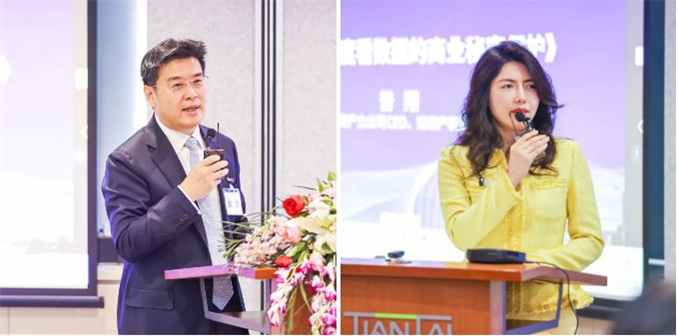
Left: Lawyer Zhang He, Director of the Management Committee and Senior Partner of Tian Tai Law Firm in Beijing
Right: Lawyer Li Fang, Member of the Party Committee and Managing Partner of Tian Tai Law Firm in Beijing
Opening Address
At the opening ceremony, Lawyer Ma Xiang, Senior Partner of Tian Tai Law Firm in Beijing and Vice Director of the Intellectual Property Professional Committee of the All China Lawyers Association, and Qiu Xianqing, President of Tsinghua University Press, delivered speeches.
Lawyer Ma Xiang extended warm welcomes and heartfelt thanks to all the guests for their attendance. He stated that Tian Tai's intellectual property business is in a leading position in the industry, especially in providing comprehensive copyright services, which makes Tian Tai's intellectual property business more comprehensive. As early as 1994, Tian Tai began engaging in trademark authorization and rights confirmation services, and in the same year, it had the honor of representing China's first trademark reverse counterfeiting case and China's first commercial secret case after the enactment of the Anti-Unfair Competition Law. Over the past 30 years, it has represented several "China's first" intellectual property cases, China's top ten intellectual property cases in the courts, Supreme Court’s guidance cases, typical cases, and cases published in the gazette. Tian Tai has excelled in the cross-protection of commercial secrets in criminal and civil matters, successfully handling numerous difficult and complex commercial secret cases. It has also participated in the compilation of the Guidelines for Lawyers Handling Commercial Secret Legal Affairs issued by the All China Lawyers Association.
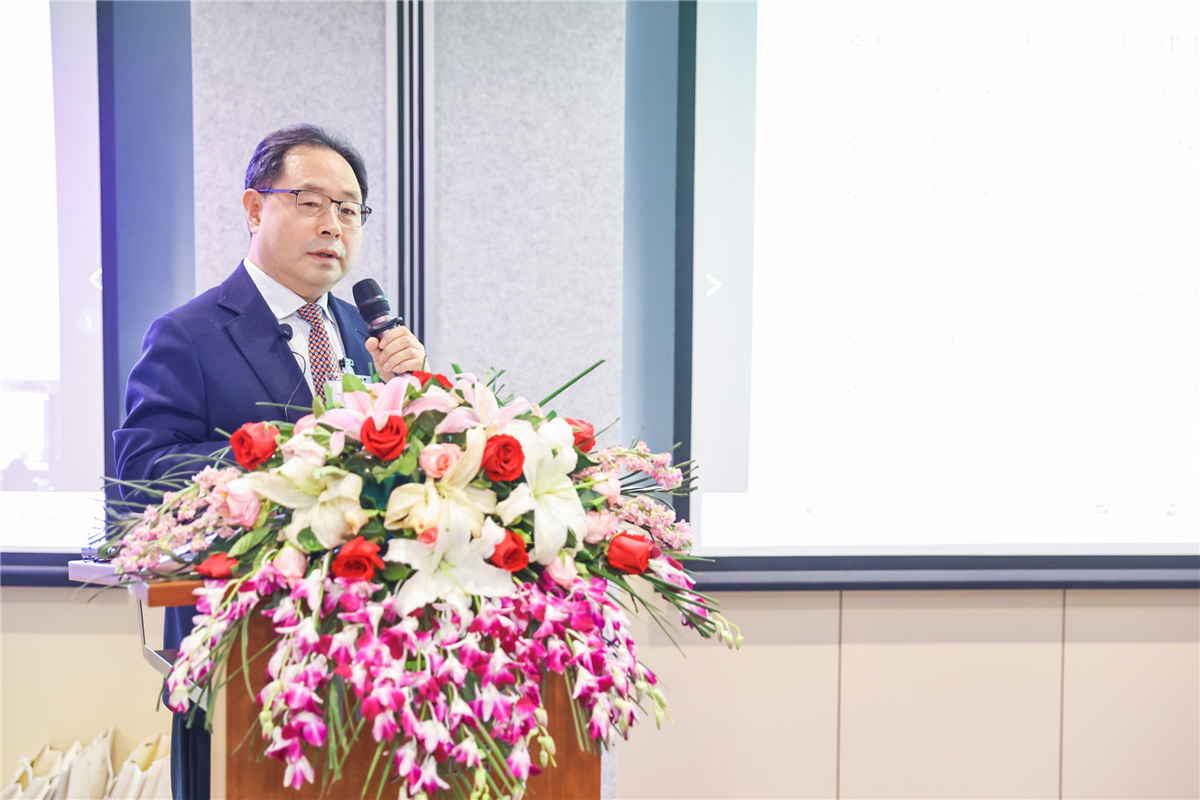
Lawyer Ma Xiang, Senior Partner of Tian Tai Law Firm in Beijing and Vice Director of the Intellectual Property Professional Committee of the All China Lawyers Association
President Qiu Xianqing extended a warm welcome to all the guests and offered hearty congratulations on the 30th anniversary of Tian Tai. He pointed out that in the context of internationalization, protecting trade secrets and implementing competition policies were crucial issues directly impacting the current era. Professor Pooley provides excellent insights in his seminal work Secrets: Managing Information Assets in the Age of Cyberespionage. This book crystallizes Professor Pooley's significant thoughts on protecting trade secrets, combining practicality, utility, and scholarly rigor. Lawyer Liu Fang's translation is concise, clear, and complementary. General Secretary Xi Jinping pointed out that innovation is the primary driving force for development, and protecting intellectual property rights is protecting innovation. Tsinghua University Press strives to excel in publishing Chinese intellectual property books, aiming to assist Chinese enterprises in better protecting trade secrets, enhancing innovation capabilities, promoting technological progress, maintaining competitive advantages, and achieving high-quality development. Tsinghua University Press looks forward to close collaboration with experts and scholars, enhancing tracking of international trends and experiences, combining China's practice in protecting trade secrets, strengthening theoretical research on forefront, forward-looking, and innovative issues in the field of intellectual property rights, and contributing more to the protection of intellectual property rights.
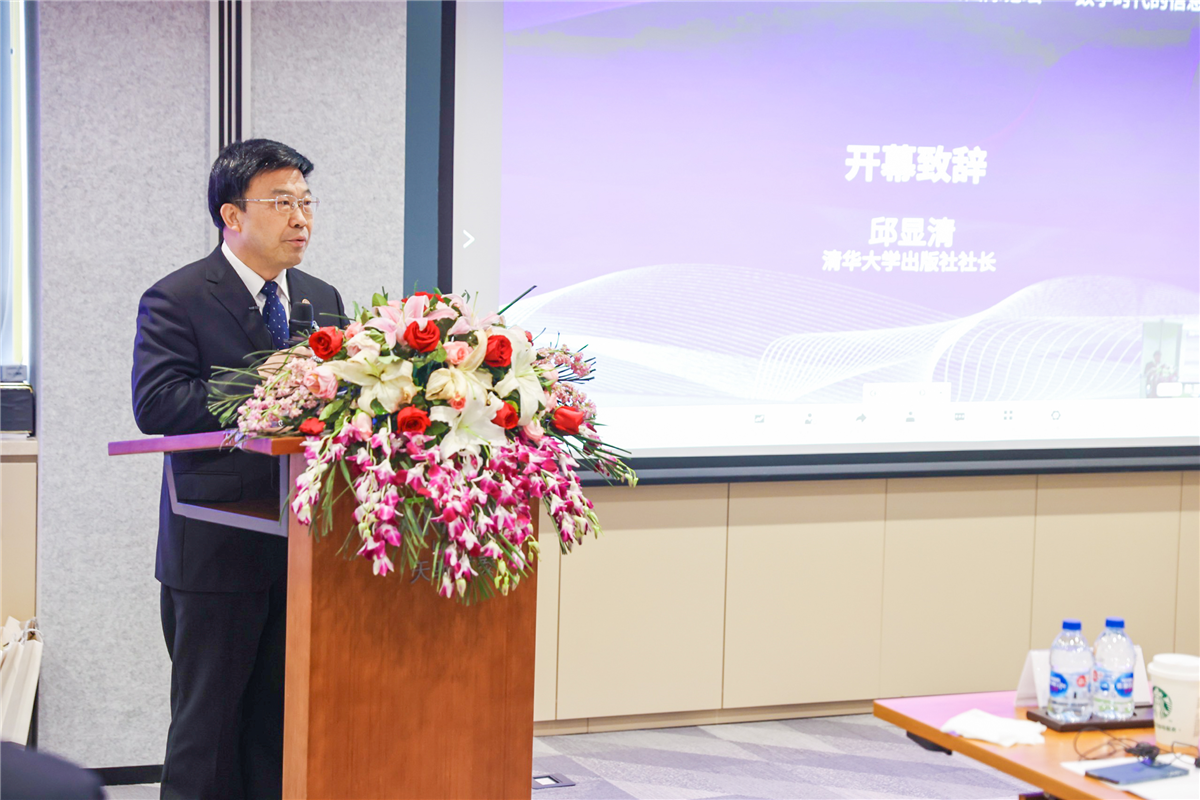
Qiu Xianqing, President of Tsinghua University Press
Keynote Speech
Mr. James Pooley, former Deputy Director General of the World Intellectual Property Organization (WIPO), former President of the American Intellectual Property Law Association (AIPLA), and author of Secrets: Managing Information Assets in the Age of Cyberespionage, delivered a keynote speech titled "Information Asset Management in the Age of Networks and AI". He addressed the importance of trade secrets, the existing legal frameworks and recent developments in the United States, damages for trade secret infringement, civil and criminal claims, jurisdictional issues in cross-border disputes, and trade secret management. First, Mr. Pooley discussed the origin of trade secrets, the evolution of the modern government's role in trade secret protection, and the formation of relevant laws and regulations in the United States. Then, he analyzed the differences and connections between patent protection and trade secret protection. By comparing the characteristics of patents, trade secrets, trademarks, design, and copyright protection, he pointed out that patents only protected new technologies, while trade secrets protected all information with competitive value, with a broader scope than patent protection. Regarding the definition of trade secrets, he believed that trade secrets had confidentiality and competitive value, and could be protected through reasonable measures. Skills and general knowledge were not included, trade secrets might be permanent, but not exclusive. Regarding compensation for trade secret infringement, he introduced that patents had certain calculation rules, while trade secrets were flexible and creative, with no specific calculation rules. To protect important information assets, he emphasized the prevention of information loss and contamination, as well as avoiding any form of contact between companies. Finally, he discussed how companies could conduct trade secret management and suggested establishing dedicated trade secret positions to achieve effective trade secret management.
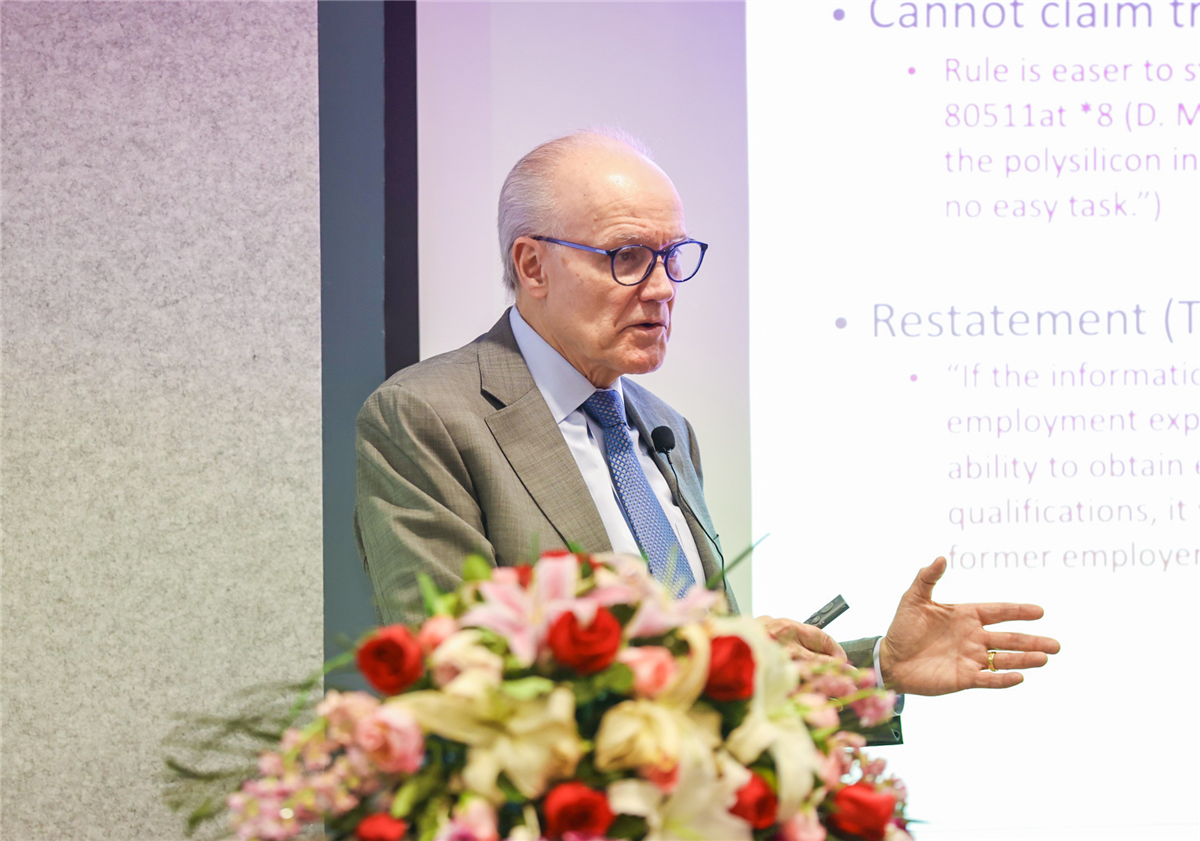
Mr. James Pooley, former Deputy Director General of the World Intellectual Property Organization (WIPO) and former President of the American Intellectual Property Law Association (AIPLA)
Luo Yi, former director of the Price Supervision, Inspection, and Anti-Monopoly Bureau and the Legislative Affairs Department of the National Development and Reform Commission (NDRC), delivered a presentation titled "Analysis of Administrative Enforcement of Anti-Unfair Competition and Trade Secret Laws". Director Luo Yi first introduced the Anti-Unfair Competition Law and related legal frameworks. He pointed out that with the introduction of new productive forces and the implementation of a high-quality development strategy, the country's protection of trade secrets had reached a new height. Then, he listed the constitutive elements of several typical behaviors, such as confusion, commercial bribery, false advertising, and infringement of trade secrets, and analyzed the four elements that trade secrets must simultaneously possess. He elaborated on the relevant provisions of supervision, inspection, and legal responsibilities in the Anti-Unfair Competition Law through case studies. Finally, he analyzed the overlapping and differences between the Anti-Monopoly Law, the Anti-Unfair Competition Law, and the Price Law, and shared insights on the differences between the three laws in terms of their formulation and revision progress, application scenarios, illegal behaviors, and enforcement agencies.
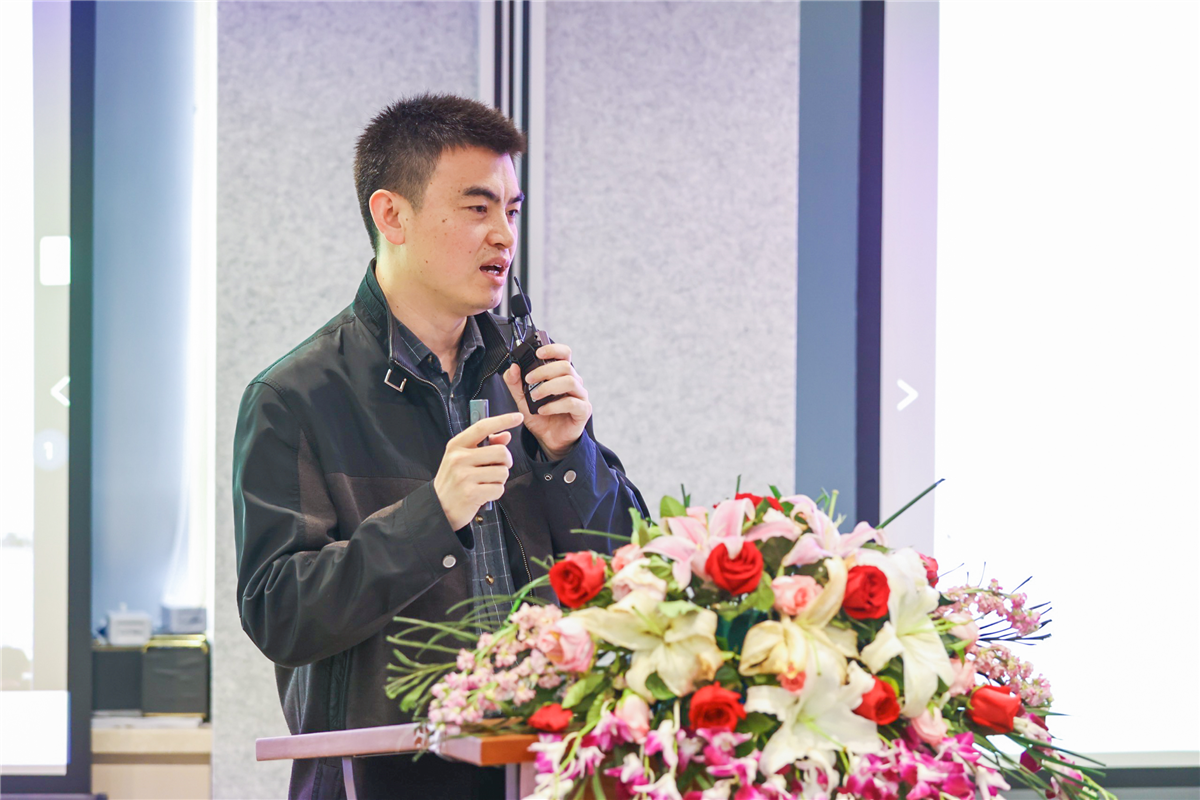
Luo Yi, former Director of the Price Supervision, Inspection, and Anti-Monopoly Bureau and the Legislative Affairs Department of the National Development and Reform Commission (NDRC)
Professor Zhang Guangliang, from the Law School of Renmin University of China and Director of the International Intellectual Property Research Center at Renmin University of China, shared case studies on "Trade Secret Litigation Between Chinese and American Enterprises and Its Implications." First, Professor Zhang analyzed the dynamics of trade secret disputes between Chinese and American enterprises. He explained that intellectual property was a contentious issue in Sino-US economic and trade relations. In November 2018, the U.S. Department of Justice launched the "China Initiative". Three years later, according to data released by the U.S. Department of Justice, 80% of criminal trade secret cases were related to China, and 60% of civil trade secret cases were also related to China. Subsequently, he provided a detailed analysis of four trade secret litigation cases between Chinese and American companies, and summarized the implications of trade secret litigation between Chinese and American enterprises. He believed that the "contact" (direct or indirect) between Chinese and American companies was the source of the risk of trade secret infringement. Finally, he analyzed the long-arm jurisdiction and legal application of the United States in trade secret disputes and provided four insights: recognizing the value of trade secrets, protecting the rights of holders, exercising rights in good faith according to the law, and actively and properly addressing disputes.
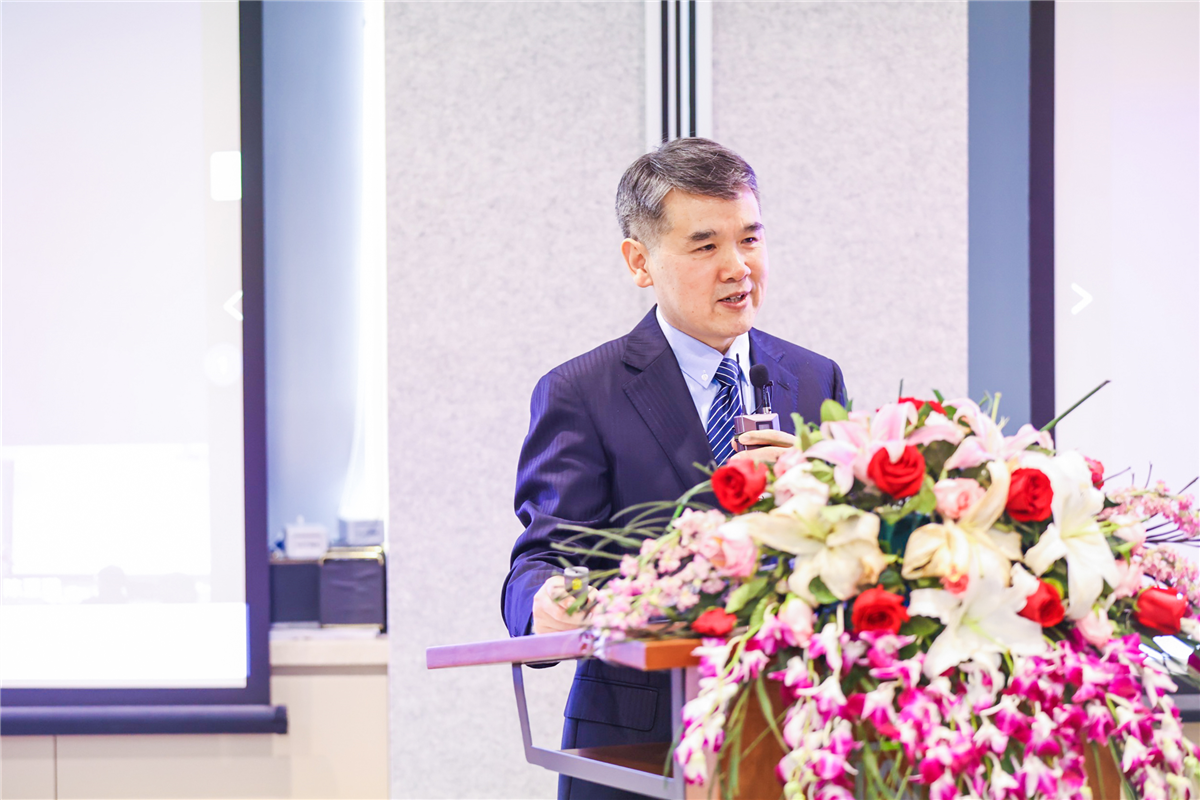
Professor Zhang Guangliang, from the Law School of Renmin University of China and Director of the International Intellectual Property Research Center at Renmin University of China
Song Jian, a former Judge from the Jiangsu High Court initiated a discussion on the "Progress in Judicial Practices of Civil and Criminal Trade Secret Cases". First, Judge Song Jian analyzed the protection of trade secrets and patent protection. She explained that judicial protection of trade secrets in China had evolved from weak to gradually strong, showing a trend of gradual enhancement, the weak exclusivity of trade secrets did not imply weak protection; protecting trade secrets safeguarded investments and subsequently fostered innovation. Through an analysis of the practices of well-known technology companies in the United States regarding open patents and strengthened trade secret protection, she pointed out that patents were primarily used for enclosure while trade secrets represented mature technologies and were the core competitiveness of enterprises. Then, she discussed the uniqueness of civil and criminal cross-issues. Taking the "Feiying Case" as an example, she illustrated the importance of the "Three-in-One" mechanism for intellectual property rights. She analyzed how conflicts between civil and criminal aspects in trade secret cases also drove the development of the "Three-in-One" mechanism. By citing laws and regulations, judicial cases, and the overlap between civil infringement and criminal acts, she examined the manifestations of civil and criminal cross-issues, the respective advantages of civil and criminal procedures, and the independence of civil and criminal procedures. Finally, she analyzed the latest developments in determining losses and compensation remedies in civil and criminal cross-trade secret cases regarding trade secrets. She pointed out that in civil cases, the calculation methods for significant or high compensation were becoming more sophisticated. In individual cases, rights holders provided multiple calculation methods and evidence, including statistical and economic calculations. The results and ranges of calculations could provide courts with discretion bases to prevent evasion of statutory compensation as much as possible.
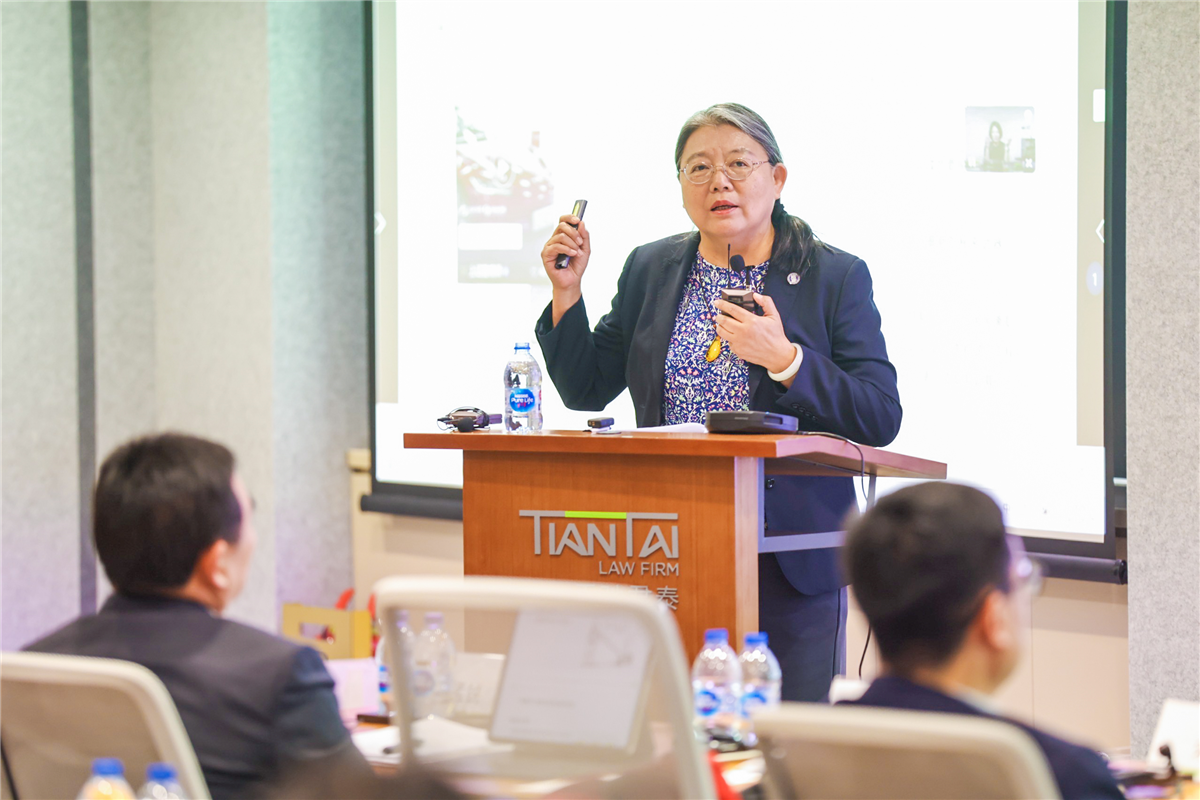
Former Judge Song Jian from the Jiangsu High Court
The speech titled "Reflections on Data" by Pu Xiang, CEO of IPHouse, first elaborated on the understanding of the essence of data from various perspectives including philosophy, mathematics, physics, information science, economics, sociology, and law. Then, he shared three thoughts on data: first, he shared conceptual thinking about data, which involved the unity of existence and cognition, the needs of production and life, and the evolution of order and norms; second, he shared reflections on data and property rights, analyzing the reasons for the emergence of property rights and the core concepts of property rights; third, he shared thinking about the monetization of data, emphasizing the characteristics of data such as intangibility, replicability, complexity of ownership, timeliness, dependence, and variable value. He believed that data posed challenges to traditional property rights and the broader the use of data trends, the higher the potential benefits it might create. Finally, he summarized four important aspects of data asset transformation: changing cognitive concepts, opening up basic data, integrating artificial intelligence, and cautious legal systems.
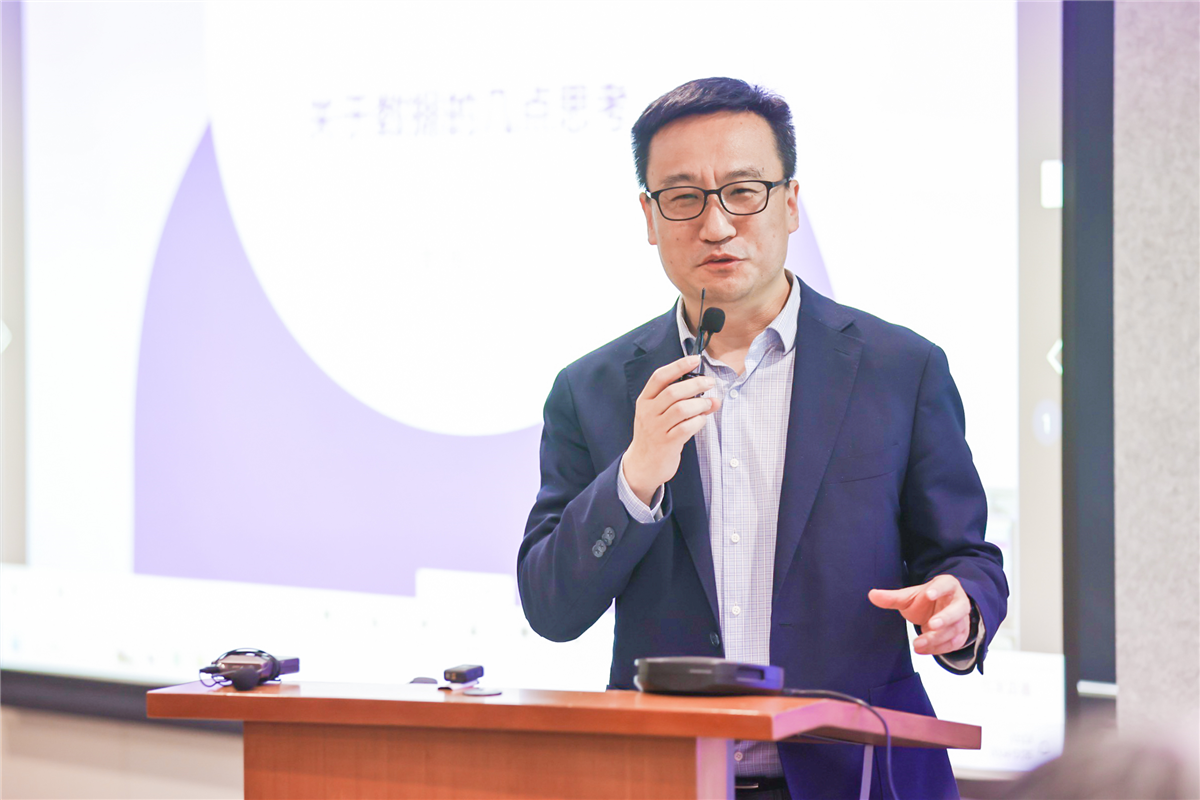
Pu Xiang, CEO of IPHouse
Lawyer Li Xiaolin, Senior Partner at Tian Tai Law Firm in Beijing and Director of the Committee on Internet and Digital Economy, delivered a keynote speech on the "Legal Logic and Judicial Determination of Key Points in Trade Secret Cases". Firstly, Lawyer Li Xiaolin analyzed the origin and current status of "key points" in trade secret cases, the legal logic and judicial determination of "key points", and the strategies for trade secret cases. By citing early cases involving "key points" and guidance in judgments, he concluded that the essence of "key points" was the specific scope and content of trade secrets clearly stated in laws and regulations. He believed that the concept of trade secret points was an application and innovation by legal professionals in China in handling trade secret cases, providing important leverage for case handling. Then, he analyzed the current situation of trade secret cases in the past decade and summarized the main reasons for the plaintiff's failure. Subsequently, he discussed the key points of attack and defense for plaintiffs and defendants regarding "key points", and analyzed four cases represented by Tian Tai. He concluded by summarizing the legal logic of key points. Finally, Lawyer Li Xiaolin shared practical applications of the burden of proof in trade secret cases and strategies for handling such cases based on his experience.
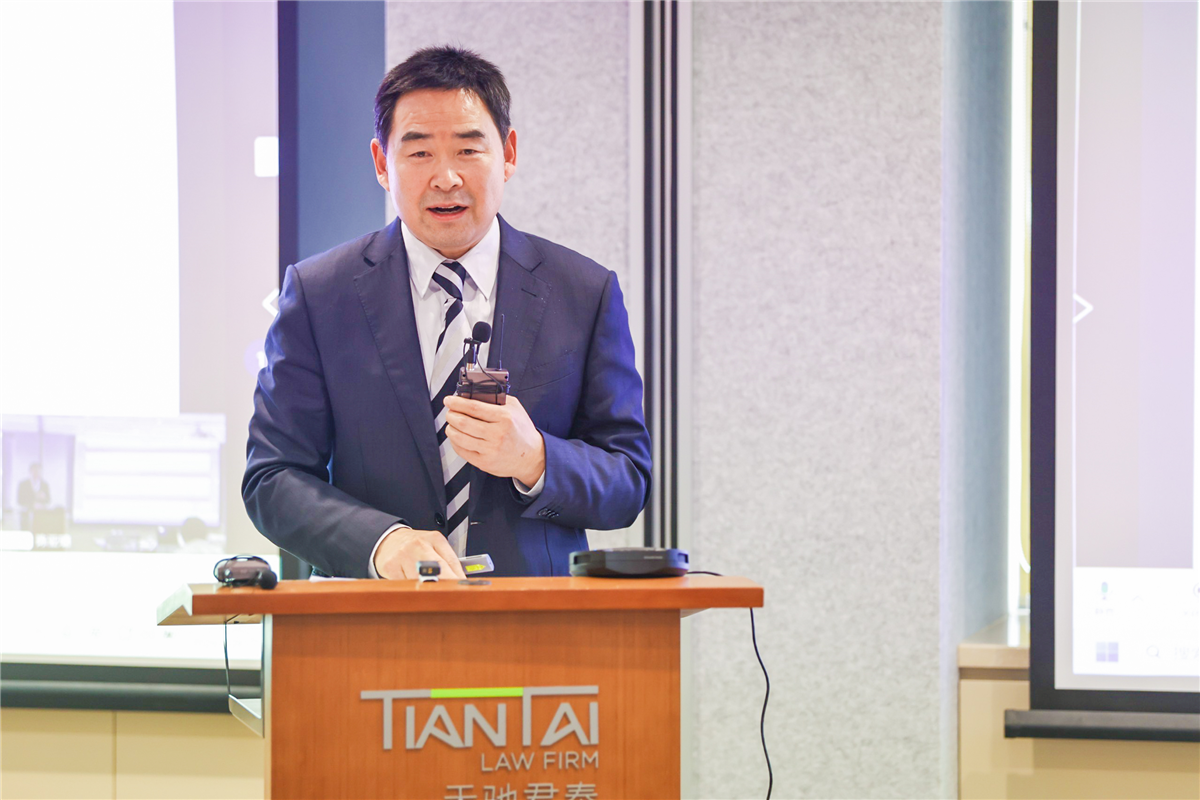
Lawyer Li Xiaolin, Senior Partner at Tian Tai Law Firm in Beijing and Director of the Committee on Internet and Digital Economy
Lawyer Cao Yuguang, Partner at Tian Tai Law Firm in Beijing, delivered an in-depth analysis on the topic of "The Application of Reverse Engineering in Trade Secrets". Firstly, Lawyer Cao Yuguang introduced the concept of "reverse engineering" in China's trade secret legislation and its counterparts in foreign trade secret legislation, with a particular focus on how Chinese courts determine reverse engineering in judicial practice. Then, he proposed that the analysis of the elements of the "reverse engineering defense" rule should be considered from four dimensions: the legality of the source, the integrity of the implementing subject, the existence of the implementation behavior, and the difficulty of the process, and elucidated the "clean room principle" and the black box closed rule. Subsequently, he illustrated how Chinese judicial practice recognized the legal effect of "anti-reverse clauses" through case studies. Finally, through practical case analysis, he distinguished that reverse engineering did not necessarily compromise the "secrecy" of trade secrets, and whether secrecy measures must be sufficient to counter reverse engineering. He pointed out that even if secrecy measures were sufficient, they might still be cracked through reverse engineering.
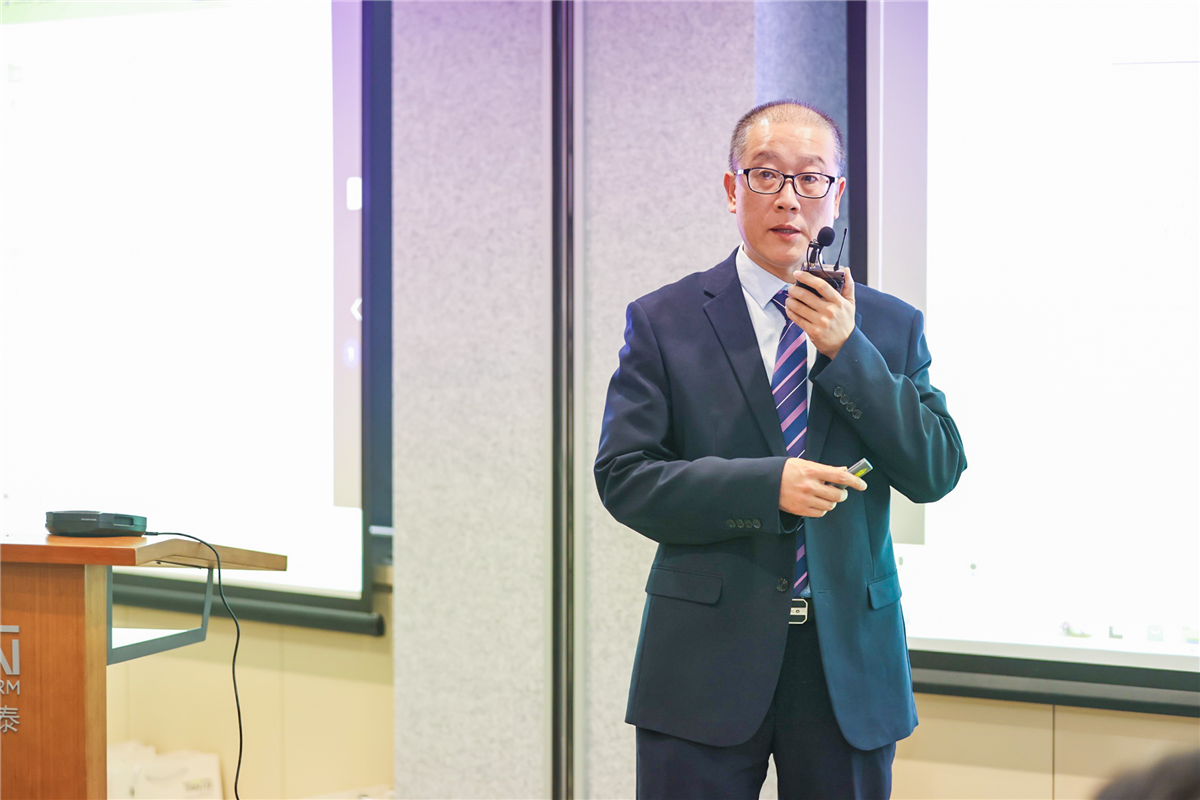
Lawyer Cao Yuguang, Partner at Tian Tai Law Firm in Beijing
Lawyer Meng Rui, Partner at Tian Tai Law Firm in Beijing, shared practical insights on "Judicial Appraisal in Trade Secrets". Firstly, Lawyer Meng Rui outlined the content, types, and implementation of judicial appraisals for trade secrets. Then, he focused on the quality certification of judicial appraisals from the perspective of evidence in trade secret cases. He elaborated on the qualifications of appraisal institutions and appraisers, the content and authenticity of appraisal materials, the methods and conclusions of appraisals, and the formal requirements of appraisal reports. Next, he introduced several scenarios of counter-appraisal in trade secret cases, including scenarios involving unilateral appraisals, counter-appraisals based on new appraisal materials, counter-appraisals regarding whether the information is "not known to the public", counter-appraisals regarding whether it constituted "substantial equivalence", and counter-appraisals regarding the scientificity of appraisal reports. Finally, he analyzed the questioning of appraisers in practice.
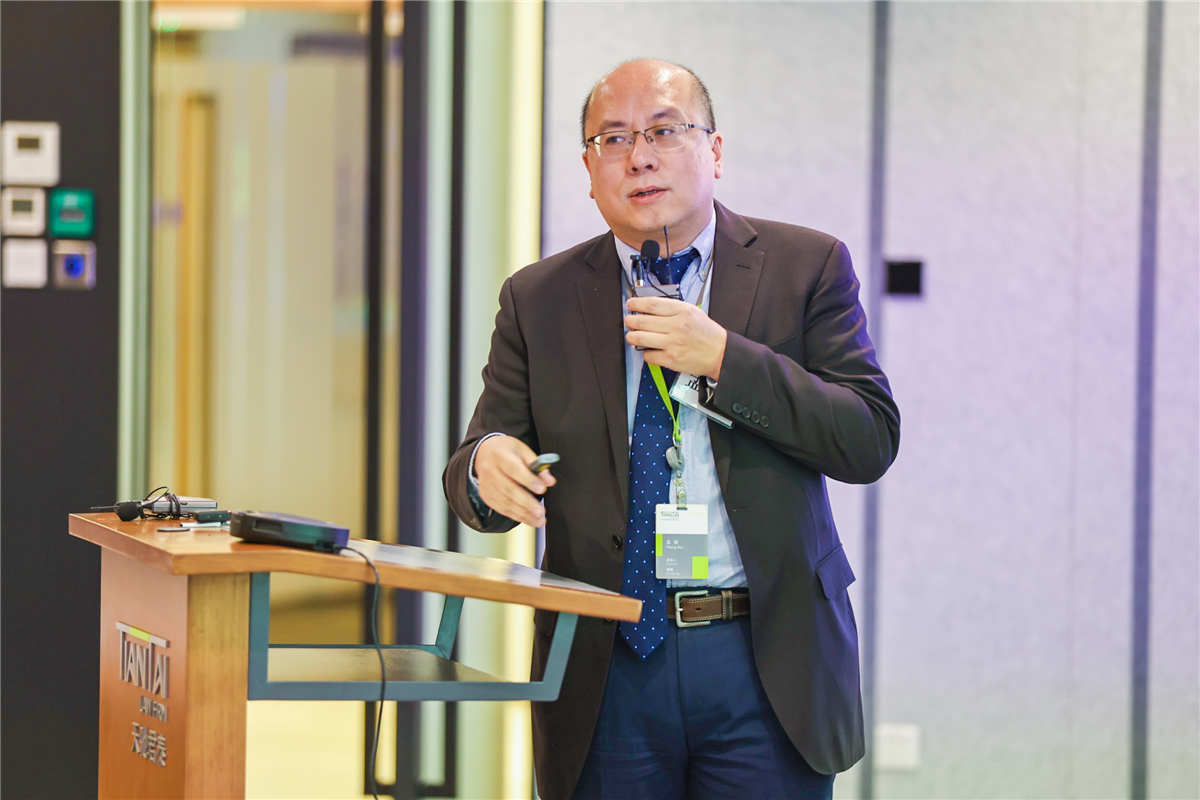
Lawyer Meng Rui, Partner at Tian Tai Law Firm in Beijing
Roundtable Discussion
During the roundtable discussion segment, Lawyer Zhu Weixian, Partner at the Shanghai branch of Tian Tai Law Firm, moderated the session. The panelists included Mr. Tian Lin, Founder of Beijing Heming Consulting Co., Ltd., Ms. Lu Xin, General Manager of the Legal Affairs Center at Joyvio Group, and Lawyer Huang Chao and Lawyer Kou Haixia, Partners at Tian Tai Law Firm in Beijing. The discussion focused on the challenges brought by the digital era to legislation, judiciary, and management of trade secrets, as well as topics such as the understanding and protection of data, the incorporation of data assets, and data sharing and compatibility.
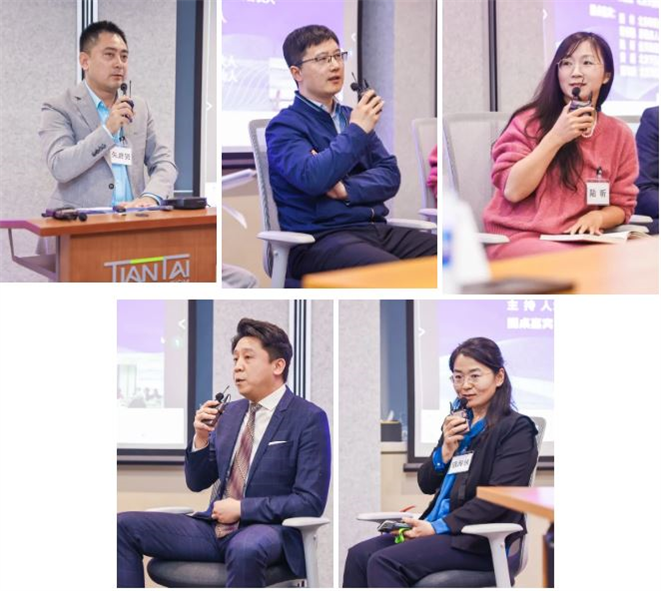
First row from left to right: Lawyer Zhu Weixian, Mr. Tian Lin, Ms. Lu Xin.
Second row from left to right: Lawyer Huang Chao, Lawyer Kou Haixia.
Lawyer Zhu Weixian, after introducing each guest, posed the first question: "Please form a sentence using the four keywords: ‘trade secrets', ‘digital (data) ', ‘information', and ‘assets'." Mr. Tian Lin, drawing from his 15 years of experience in legislative work at the Legislative Affairs Commission of the National People's Congress, clarified concepts based on professional habits. He provided his understanding of trade secret protection: "Trade secrets are not equivalent to data assets, nor are they equivalent to personal information, but they require appropriate legal protection." Ms. Lu Xin remarked that in practice, she pointed out that data information had provided crucial information for companies to win lawsuits or arbitration cases, hence "Data information is the most original and valuable asset for enterprises." Lawyer Huang Chao stated that in handling cases, he had observed an increasing overlap between trade secrets and data compliance. He believes that "in the digital economy era, trade secrets, as intangible assets, are increasingly manifested in the form of data and information."
Lawyer Kou Haixia believed that as assets became increasingly intangible and information became more electronic, "trade secrets are the most natural way to protect data and information." Trade secrets undoubtedly had great potential in the future. Finally, Lawyer Zhu Weixian summarized and believed that "both trade secrets and data are information essentially and can become assets of enterprises."
He raised a second question: “According to available data, trade secret cases are few and far between compared to other types of cases.”Would the arrival of the digital era alter this scenario? Lawyer Huang Chao suggested that with the challenge of collecting evidence, leveraging technology for preventive measures and securing evidence post-discovery could boost the preference for civil rights protection. Lawyer Kou Haixia highlighted the scarcity of criminal cases concerning trade secrets in the United States, contrasting with the prevalence of such cases domestically, attributed to differing rules of evidence.
In the United States, there's a system of disclosure of evidence, where one can demand the opposing party to provide evidence, and they are obliged to do so. However, in China, rights holders lack the means to obtain evidence, so currently, their only option may be to utilize public authority, leading to many cases where criminal proceedings precede civil actions. In the context of the existing domestic system, technological means have a dual nature: on one hand, new technological methods make it easier for others to get access to trade secrets, while on the other hand, rights holders can also use technological means to more easily trace the theft of trade secrets.
Therefore, she believed that the number of cases would not change significantly. Tian Lin, summarizing based on the practical experience of intellectual property lawyers, suggested that providing evidence online was much easier than offline, which could lead to an increase in the number of cases. Lawyer Zhu Weixian raised a third question: “Regarding data becoming a company's asset and being entered into tables, what foundational work needs to be done for data entry?” Lawyer Huang Chao stated that for data entry, the initial step was to conduct inventory and organization of the data, including labeling, classification, grading, and ensuring proper data storage.Should one protect their rights from the perspective of trade secrets or from the perspective of infringement upon data rights? He believed there was an overlapping between the two, but as long as they met the relevant legal requirements, either approach could be applied. Lawyers could assist the parties involved in clarifying the constitutive elements and thereby prepare a complete chain of evidence.
Lawyer Zhu Weixian, drawing from the Data Capability Maturity Model (DCMM), suggested essential tasks for enterprises in the process of data assetization: conducting a thorough inventory of data assets, managing data quality, establishing data standards, and developing a data management framework.
Finally, during the Q&A session, the participants engaged in lively discussions regarding issues such as whether confidentiality agreements should stipulate in advance the damages for disclosure of trade secrets and how to determine the critical points of secrecy.
As international economic and trade rules undergo profound changes, Chinese enterprises seeking business opportunities overseas are facing multiple challenges. How can these enterprises protect their various intellectual property rights and mitigate the legal risks of potentially infringing on the trade secrets of their partners? This is a crucial issue that overseas enterprises urgently need to consider and address.During this forum, in-depth research and discussions were conducted on the protection of trade secrets from the perspectives of international and domestic legal regulations, judicial practices, and adjudicative rules. Difficult issues, practical explorations, and emerging trends in trade secret protection were thoroughly examined and discussed, providing an international perspective and practical guidance for companies in safeguarding their trade secrets.
In the future, Tian Tai will continue to adopt a forward-looking legal perspective to support the government and enterprises in intellectual property protection compliance. Comprehensive legal services in intellectual property rights, antitrust and anti-unfair competition, international commercial arbitration, and other areas will be provided to facilitate enterprises' international expansion. This endeavor aims to contribute to the construction of a strong intellectual property nation and promote high-quality development.

Subscribe to our WeChat Official Account